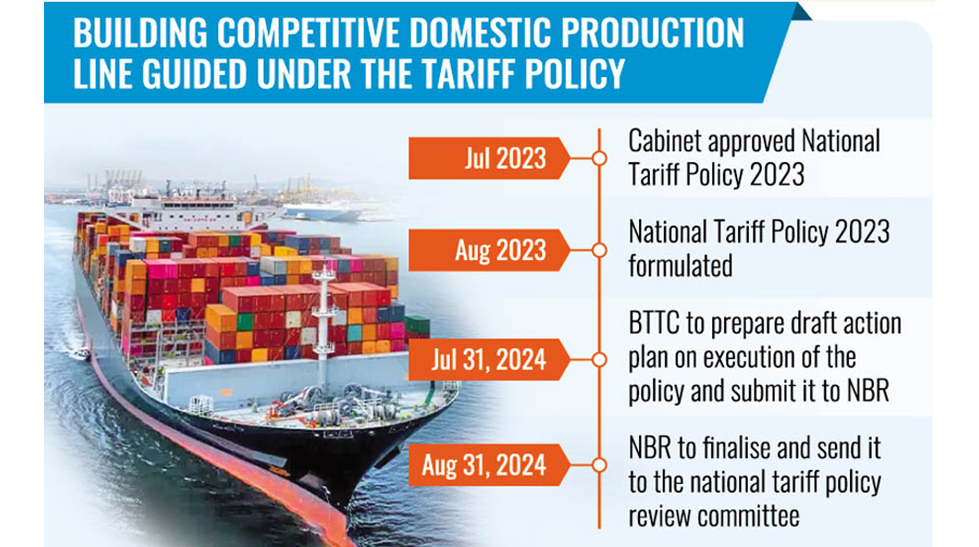Burgeoning E-commerce Potential in Bangladesh.
- By Naveed Al Razi -- 6 minutes read --
- Nov 21, 23
" The potential and challenges of E-commerce in Bangladesh as the field grows. "
Unlocking a world of opportunities, the burgeoning e-commerce potential in Bangladesh is reshaping the retail landscape. As E-commerce experiences unprecedented growth, transcending borders and traditional retail norms, businesses in Bangladesh are tapping into this dynamic space with full confidence.
Where will E-commerce in Bangladesh stand in the coming years?
With the ability to reach local and global audiences 24/7, e-commerce in Bangladesh is not just a convenient platform but also a cost-effective alternative to brick-and-mortar setups. In the post-pandemic era, e-commerce was crafting a multichannel sales funnel, compelling businesses to master digital engagement strategies to stay at the forefront of technology and effectively connect with today's and tomorrow's customers. The local e-commerce market in Bangladesh is poised for substantial growth, with projections indicating a $4 billion increase over the next four years.
The E-commerce market in Bangladesh stands poised for impressive growth. Projections indicate an annual increase of 9.33%, propelling the market to a substantial US$6.9 billion. What's even more compelling is the medium to long-term growth narrative, painting an attractive picture for the E-commerce industry in Bangladesh. Looking ahead, the industry is anticipated to maintain a steady upward trajectory, with a forecasted Compound Annual Growth Rate (CAGR) of 7.37% from 2023 to 2027. This momentum is set to drive the E-commerce gross merchandise value to new heights, surging from US$6.3 billion in 2022 to an impressive US$9.2 billion by 2027.
What are the challenges of E-commerce in Bangladesh?
Bangladesh's e-commerce, which surged 300% during the COVID-19 pandemic, might be facing challenges soon. Scams have eroded consumer confidence, especially among newcomers. Privacy concerns about personal data add to the issues. Industry insiders note a 15% year-on-year growth fall, attributing it to factors like commodity declines, global supply disruptions, and real wage erosion.
Despite robust 50-60% growth post-pandemic until 2022, the industry has faced setbacks since January 2023 due to local and global financial crises. Unethical practices like data trading stress the need for stringent data privacy laws has led to order value decline, 'basket value' reduction, and a 40% drop in orders challenge businesses valued at Tk 400 billion.
What Steps Are Being Taken By The Authority
To foster eCommerce and promote the growth of information technology, Bangladesh enacted the Information and Communication Technology (ICT) Act of 2006. The Act, amended in 2013, introduced provisions for imprisonment and/or fines for cyber crimes. The implementation of the Act has had significant implications for e-commerce and mobile commerce users and companies in Bangladesh. The industry's growth has been impeded by the limited use of credit and debit cards (with cash remaining the primary payment method) and the unavailability of or restrictions on major online transaction sites, such as PayPal.
In June 2020, the Government of Bangladesh lifted the 49 % maximum allowable shareholding limit on foreign e-commerce companies, enabling 100% foreign-owned companies to operate in Bangladesh. The demand for eCommerce services experienced a significant boost due to COVID-19 social distancing measures, leading many traditional businesses to embrace online sales platforms.
In conclusion, e-commerce is here to stay. As the world moves towards the online spheres in multilevel integrations, Bangladesh too will shape up according to global velocity. With laws being formed regularly, it is safe to say e-commerce in Bangladesh might take over the conventional shopping methods with better laws to protect customers.
.png)









